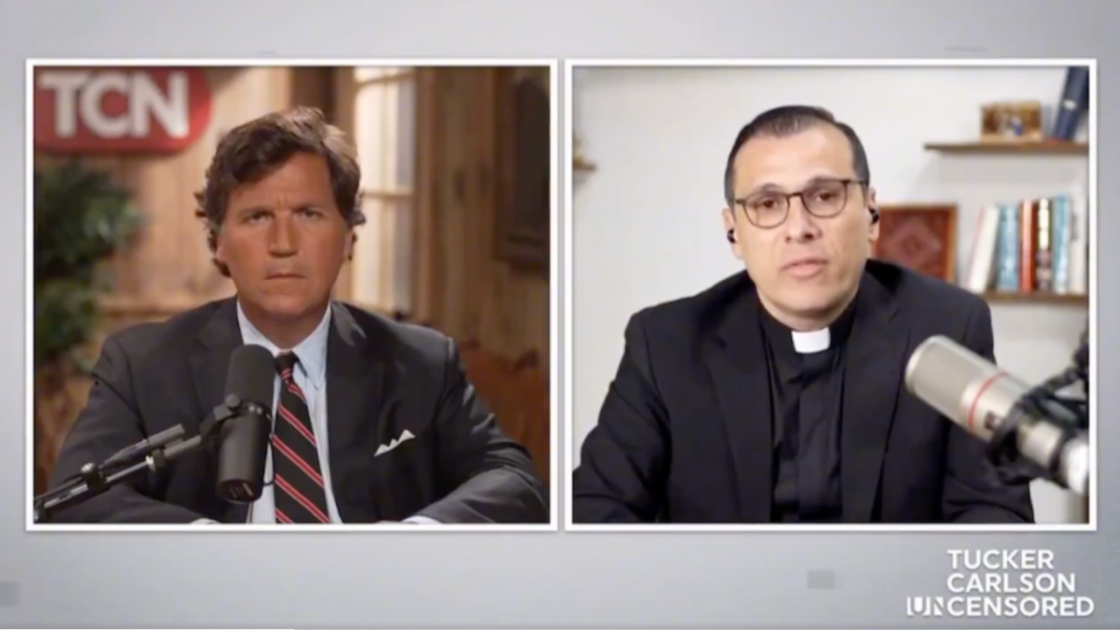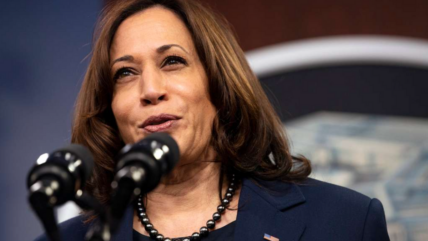
On Tuesday, Tucker Carlson explored the varying attitudes of American Christians regarding the ongoing war between Israel and Hamas in Gaza by interviewing the Rev. Munther Isaac, pastor of the Evangelical Lutheran Christian Church in Bethlehem.
Carlson and Munther addressed the plight of Palestinian Christians, many of whom have been killed by Israeli forces.
RELATED: Dwayne ‘The Rock’ Johnson regrets endorsing Biden in 2020, says he won’t do so again in 2024
Lutheran Reverend in Bethlehem: “We continue to be horrified by what we hear from Congress”
Carlson said in his opening monologue: “A constant but almost never noticed theme of American foreign policy is that it is always Christians who suffer.”
Carlson continued: “There is virtually never a word about the Christians who live there, about the ancient Christian community of Gaza, about the West Bank and about Israel proper.”
The former Fox News host detailed some of the destruction that has occurred against the Christian community in the region.
Then Reverend Isaac responded, saying, “These are very difficult times, and have been difficult for quite some time. When I say difficult times I am not just referring to October 7th.”
The Lutheran reverend sheds light on how Christian communities in Gaza, Israel, the West Bank and East Jerusalem are suffering.
“In my church I have family members who have relatives in Gaza and can’t even visit them, [even] before the war they couldn’t visit them and be with them,” he said. “People continue to leave because of political realities. Life under a very harsh Israeli military occupation is difficult to bear and, as a result, many young Palestinian Christians continue to leave, for example to Bethlehem, choosing to find a better and easier life elsewhere.”
No Christian support in Congress
Carlson asked, “Has any member of Congress sent you assistance of any kind? Word of support? A fellow Christian?”
“No, I mean, on the contrary,” Isaac replied. “We continue to be horrified by what we hear from Congress… when we look at the so-called religious right, we get no sympathy. Sometimes we are just happy to be listened to and to have our perspective taken seriously.”
“One of the things that often strikes me, whether when I talk to diplomats, politicians, congressional staffers, or even influential pastors and pastors, is how little they know about the reality on the ground. Their knowledge of the situation here seems to be very superficial, yet they have very strong opinions,” Isaac said.
Carlson then questioned that so many right-wing Christians in America will not speak out on behalf of their Christian brothers abroad, some of whom live in the same places where Jesus Christ walked.
Carlson said:
“You may be wondering, ‘well, wait a second, if Christian leaders aren’t fighting for the lives of Christians, why have them in the first place?’ And that’s probably a good question. You would think that in Congress, where there are many self-proclaimed Christians, someone would speak on behalf of his brothers in the Holy Land, but no. Just the opposite, in fact.”
Many were unhappy that Carlson shed light on the reality of Palestinian Christians. Here are just a few examples:
RELATED: Kid Rock says ‘Trump is winning’ – ‘If you don’t vote for Donald Trump, you’re not from Michigan’
No doubt there will be further controversy on this front.
Tucker’s interview continues…
Carlson then showed a clip of Michigan Republican Congressman Tim Walberg, a former evangelical pastor, that if the United States were to help Israel treat Gaza “like Nagasaki and Hiroshima.”
The conservative pundit was not amused.
“To be clear, from a theological standpoint, Christianity is not the religion of Hiroshima and Nagasaki, it is the religion, of all the world’s religions, that uniquely abhors mass killing,” Carlson said. “Indeed it is THE religion that abhors mass killing. There is no excuse for this from a Christian perspective. And here we have a former pastor who requests it.”
Isaac replied, “This obsession with war and violence… is the antithesis of everything Jesus taught.”
Isaac continued: “This, once again, makes us wonder. Do you realize how harmful this is for us Christians who live not only in Palestine but in the Middle East? Damaging in the sense of real impact on our lives, but also damaging in terms of credibility with our colleagues here in the Middle East.”
Carlson and Isaac spoke further about the plight of Palestinian Christians, the reverend concluding with this note:
“What we ask for are reasonable and fair Christian leaders, who understand the reality on the ground and are able to push for a just peace in this land where Palestinians and Israelis live together.”
